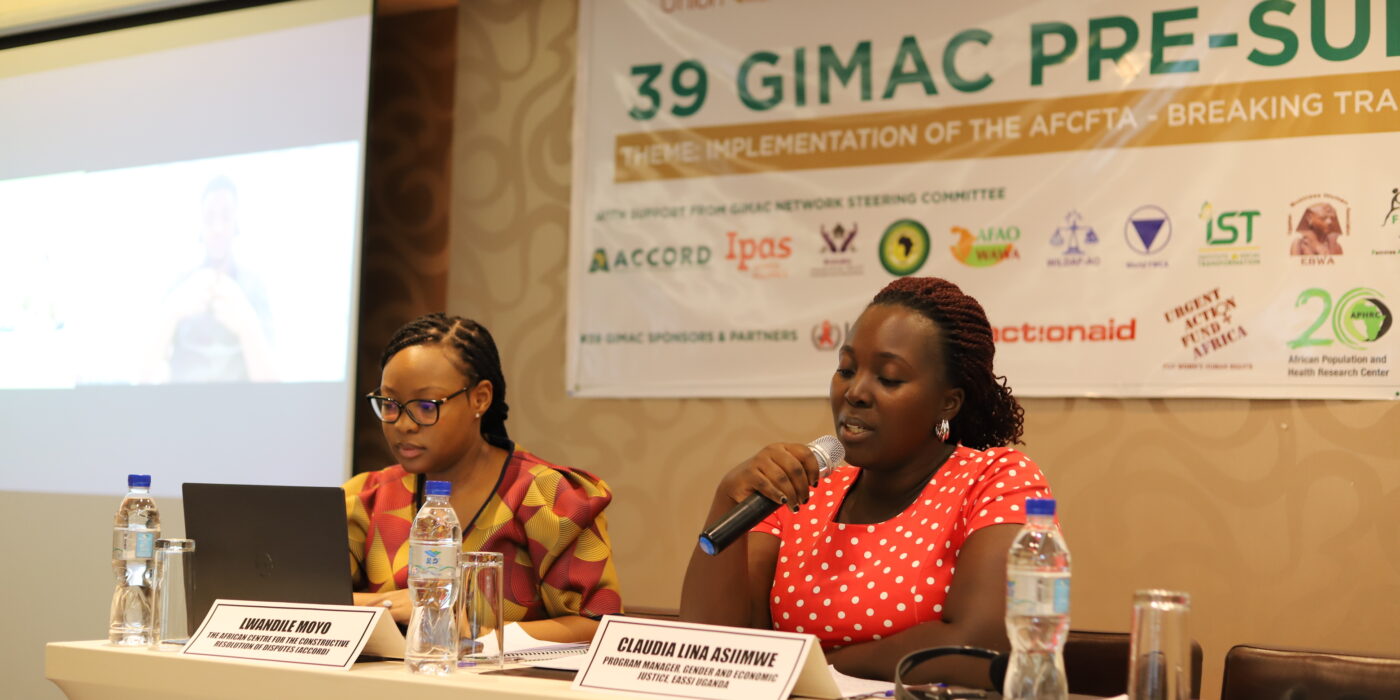In line with the 2023 AU theme of the year “Acceleration of the African Continental Free Trade Area (AfCFTA),” GIMAC hosted its 39th pre-consultative meeting from February 12th to 14th, 2023 in Addis Ababa, Ethiopia.
The meeting focused on the implementation of the AfCFTA and breaking down barriers for African women to ensure their inclusion in the process. It provided a platform for African Union (AU), Regional Economic Communities (RECs) , Civil Society Organisations (CSOs), and partners to discuss the opportunities that AfCFTA can create for a gender inclusive implementation and inspire commitment for collective action with the AU mechanisms responsible for its implementation.
In collaboration with the African Centre for the Constructive Resolution of Disputes (ACCORD) and Femmes Africa Solidarite ( FASNGO), Women’s International Peace Centre hosted a panel discussion on the #AfCFTA as a driver of continental peace and security.
The panel highlighted conflict as one of the greatest obstacles to women’s participation in trade citing its devastating impact on economies and exacerbation of gender based vulnerabilities.
The closure of borders and disruption of supply chains strains economies, while women oftentimes face insecurity, displacement and violence. Not to mention, the high risks women dealing in cross border trade face of forced detention by armed forces while accessing markets.
“The Rwanda-DRC conflict makes cross borders trade particularly difficult for women,” Juvenal Lushule, a panelist said. “Moreover, women are often the targets of attacks from armed groups who rape and detain them as sex slaves.
“In South Sudan, it’s the men in uniform who interrupt our agricultural and trade efforts. They sell our produce and sexually assault us using the gun.”, another panelist commented.
This not only causes immense suffering for the victims, but also undermines their economic participation and overall development.
To address the challenges discussed, the panel emphasized the need for;
1) Systematic support provided to victims for restoration of their livelihoods and enable them to respond to challenges of displacement, insecurity and violence.
2) Greater efforts directed towards addressing the root causes of conflict such as inequality and poverty rather than focusing efforts on ending the conflicts themselves.
3) Peace, reconciliation and justice to be considered in the development of trade policies to address the weak mechanisms for dispute resolution among communities engaged in cross border trade
4) African leaders to implement accountability measures for women to trade in peace
In conclusion, there’s no doubt that the AfCFTA has potential to boost the continental’s income and increase intra-Africa exports. However, without addressing the challenges faced by women and girls, the outcomes would be unequal. Therefore, African leaders and the AU were urged to fulfill their commitments to addressing the insurgence of armed groups and eliminating all forms of violence against women
The GIMAC Network meeting concluded with several recommendations, which will be presented at the AU Heads of State and Government Summit in February 2023



